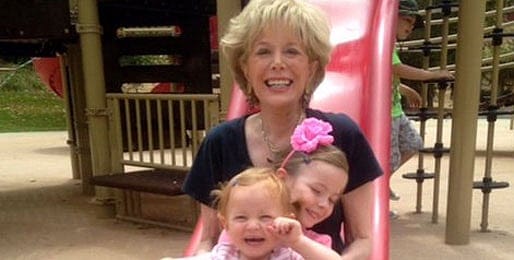North Shore-raised journalist chronicles the newfound love of grandparenting

Lesley Stahl, born in Lynn and raised in the sea-scaped town of Swampscott, is best known to some as a chronicler of stories on CBS's "60 Minutes." Of the many vivid chapters Leslie has written in her world-traveling diary, the tale she now pens with curiosity, poignancy and societal resonance is that of becoming a grandmother.
In her new book, "Becoming Grandma: The Joys and Science of the New Grandparenting" Lesley shares her memory of transcendence as she cradled her daughter Taylor's newborn in her arms. Stahl says baby girl Jordan made her think she was growing a new chamber in her heart. The seasoned White House correspondent under Presidents Carter, Reagan, and G.H.W. Bush, remembers "I nearly swooned staring at her like a lover." She goes on to say, "I was at a time in my life when I assumed I had already had my best day, my tallest high. But now, I was overwhelmed with euphoria."

